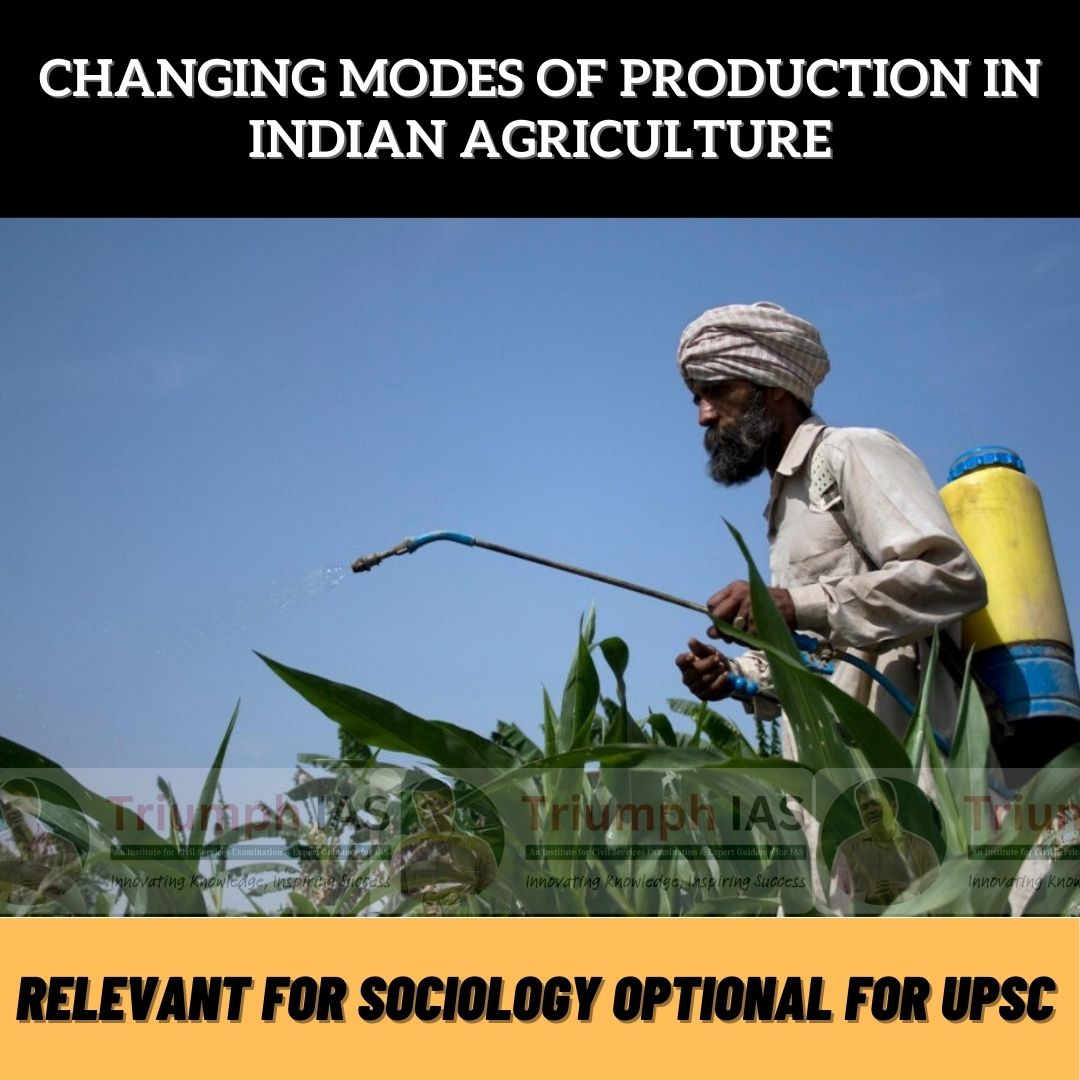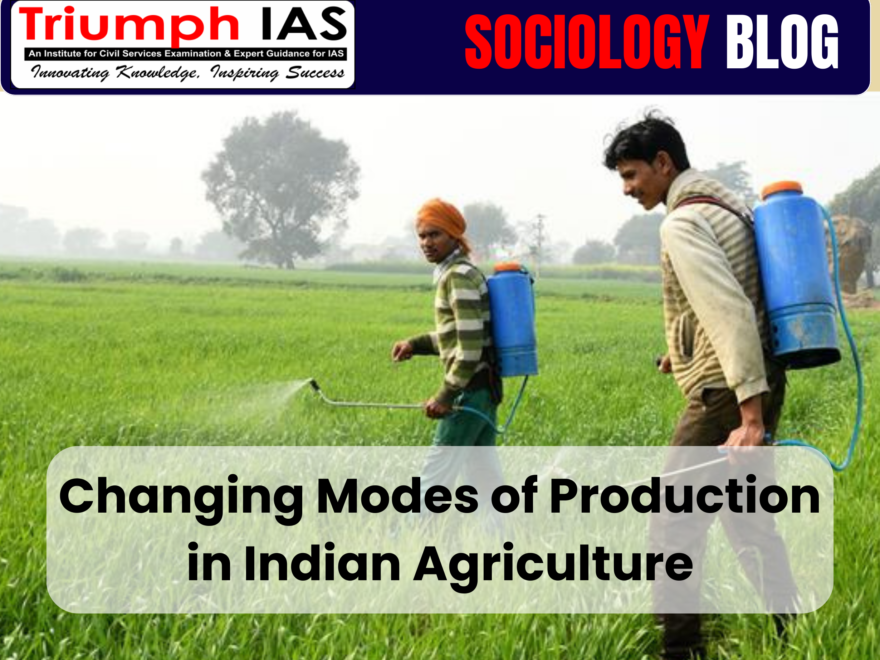Changing Modes of Production in Indian Agriculture
Relevant for Civil Services Examination
Paper-2, Unit-13 [Rural and Agrarian transformation in India]

After Class Doubts Session of Students
with Vikash Ranjan Sir
Frequently Asked Questions by
UPSC Sociology Optional Students
- How to prepare for the Sociology Optional without coaching?
- Understand the syllabus thoroughly: Familiarize yourself with the entire syllabus for both Paper I and Paper II. Download the official UPSC syllabus and use it as your roadmap. You can attend Sociology Orientation Lectures by Vikash Ranjan sir on YouTube
- Build a strong foundation: Start with introductory textbooks and NCERT books to grasp core sociological concepts. You can start with Introduction to Sociology books
- Choose reliable study materials: Select high-quality textbooks, reference books, and online resources recommended by experts. You can opt for Vikash Ranjan Sir Notes too.
- Develop a study schedule: Create a realistic and consistent study schedule that allocates dedicated time for each topic. Stick to it and track your progress.
- Take notes effectively: Don’t just passively read. Summarize key points, create mind maps, or use other note-taking techniques to aid understanding and revision.
- Practice answer writing: Regularly write answers to past year question papers and model questions. Focus on clarity, structure, and critical thinking. Evaluate your answers for improvement.
- Seek guidance: You can take free Mentorship on Sociology Optional preparation by Vikash Ranjan sir. Connect with Vikash Ranjan sir (7303615329) to share strategies, ask questions, and stay motivated.
- Can I prepare for Sociology Optional without coaching?
Absolutely! Many aspirants successfully clear the exam through self-study. However coaching can provide structure and guidance, for time bound preparation.
- What are the benefits of preparing without coaching?
- Cost-effective: Coaching can be expensive, and self-study allows you to manage your resources efficiently.
- Flexibility: You can tailor your study plan to your individual needs and pace.
- Independence: You develop critical thinking and research skills, valuable assets for your career.
- What are the challenges of preparing without coaching?
- Discipline and motivation: You need self-discipline to stay on track and motivated without external guidance. Coaching and Teacher keeps you motivated.
- Access to resources: You may need to do extra research to find quality study materials and answer-writing practice opportunities. Teacher help you on this respect.
- Doubt clearing: You might lack immediate access to someone to address your doubts and questions. Teacher like Vikash Ranjan sir is accessible to his students 24×7 Mo- 7303615329
- What additional resources can help me?
- Vikash Ranjan Sir’s YouTube channel and website: Offers free Sociology lectures, study materials, and guidance.
- Triumph IAS website: Provides past year question papers, model answers, and other helpful resources.
- Public libraries and online databases: Utilize these resources for access to relevant books, journals, and academic articles.
Sociology Optional Program for
UPSC CSE 2025 & 2026
Follow us :
🔎 https://www.instagram.com/triumphias

